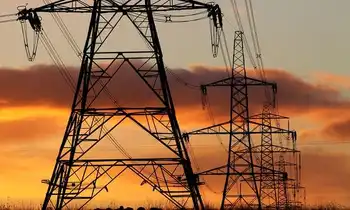Public can weigh in on proposed Botetourt power line routes
VIRGINIA - Appalachian Power Co. proposed a two-mile overhead power line in southern Botetourt County and invited public comment on four general routes.
In addition, a substation will be needed in the vicinity of Laymantown and Mountain Pass roads to complete what will be called the Lake Forest Project.
The $7.9 million project - with relatively low-grade transmission lines that hang from single poles, rather than giant towers - is designed to improve electrical service to about 7,100 customers, some of whom have endured a slew of unusually long outages.
Public comment will begin September 11.
Appalachian will need approvals from the Virginia State Corporation Commission and hopes to energize the line in June 2009. Some 600 property owners have been notified that their land lies near the project site.
Appalachian planned to phone customers and play a recorded message. New power lines can be a sore subject for some residents, even when an electrical utility can make the case that more transmission lines are needed to ensure the safety and reliability of electricity service or support new homes and businesses.
To get the OK for a 24-mile wire between Rocky Mount and Penhook, Appalachian endured much public criticism in Franklin County last year. A 90-mile conduit carrying high-grade 765-kilovolt transmission lines from Wyoming County, W.Va., to Jacksons Ferry Va., spent 13 years under review.
This time, the location is southern Botetourt County, where the potential exists again for resident vigilance to protect pretty, rural views and keep power equipment off private property. Appalachian spokesman Todd Burns said the utility is planning to roceed carefully with such impacts in mind.
For instance, the wires will be strung from single steel poles 100 feet tall, which will rust brown. They will stand out far less than the shiny, four-legged, Erecter Set-style supports the utility has used in the past, he said.
The choice of a specific location will be a collaborative process. "We're not saying, 'Here's where it needs to go,'" Burns said.
"We're presenting a bunch of different options to try and solve an electrical problem and we're asking for input to help us find the best place for the facilities."
Indeed, as the announcement went out to the news media, the company's Web site made available a large, aerial photograph of an area east of Alternate U.S. 220 showing several possible routes marked in green and possible substation locations in white. The utility will need a 100-foot-wide swath of ground for the line.
Citing reasons of cost and reliability, the line cannot be built underground, Appalachian said.
Ned McElwaine, deputy Botetourt County administrator, described the general area as "pretty heavily residential." There are no large residential housing projects under way or recently proposed for the project area, he said.
Resident Marc Hutchins of southern Botetourt County said he glanced at the photo and was able to preliminarily conclude he won't be able to see the line. But were he facing the prospect of a power line out his kitchen window, he thinks he would be able to surrender some natural beauty for access to communications and entertainment devices.
"We demand to be able to use our Internet, our cable television and everything else and when they want to throw a piece of equipment in your back yard to make it happen, a lot of people get upset about that. You can't have it both ways," he said.
Residents of the Rainbow Forest community have a reason to pay special attention to the project.
According to Burns, one of the proposed routes follows that of an existing line strung over Rainbow Forest Lake. Burns said if that route is chosen, the line will be upgraded. If not, the line will be taken down, he said.
David Wright, the utility's project manager, said the new transmission equipment will add to the supply of available energy and provide an alternate delivery route to the communities of Blue Ridge, Bonsack and Cloverdale.
Related News

The nuclear power dispute driving a wedge between France and Germany
BERLIN - Near the French village of Fessenheim, facing Germany across the Rhine, a nuclear power station stands dormant. The German protesters that once demanded the site’s closure have decamped, and the last watts were produced three years ago.
But disagreements over how the plant from 1977 should be repurposed persist, speaking to a much deeper divide over nuclear power between the two countries on either side of the river’s banks.
German officials have disputed a proposal to turn it into a centre to treat metals exposed to low levels of radioactivity, Fessenheim’s mayor Claude Brender says. “They are not on board…




